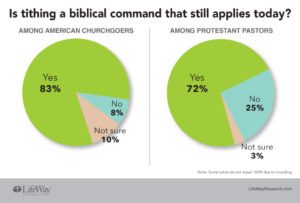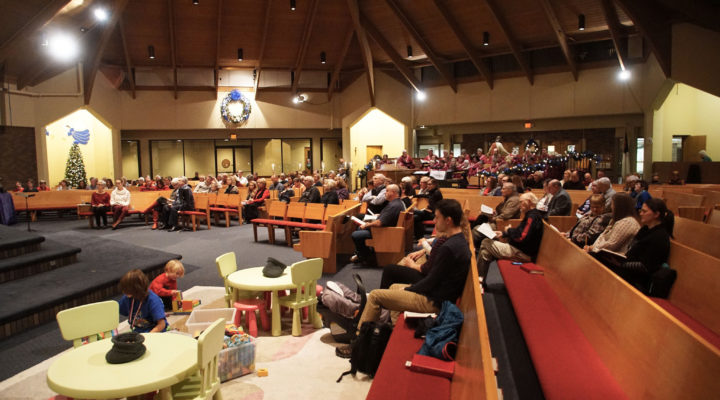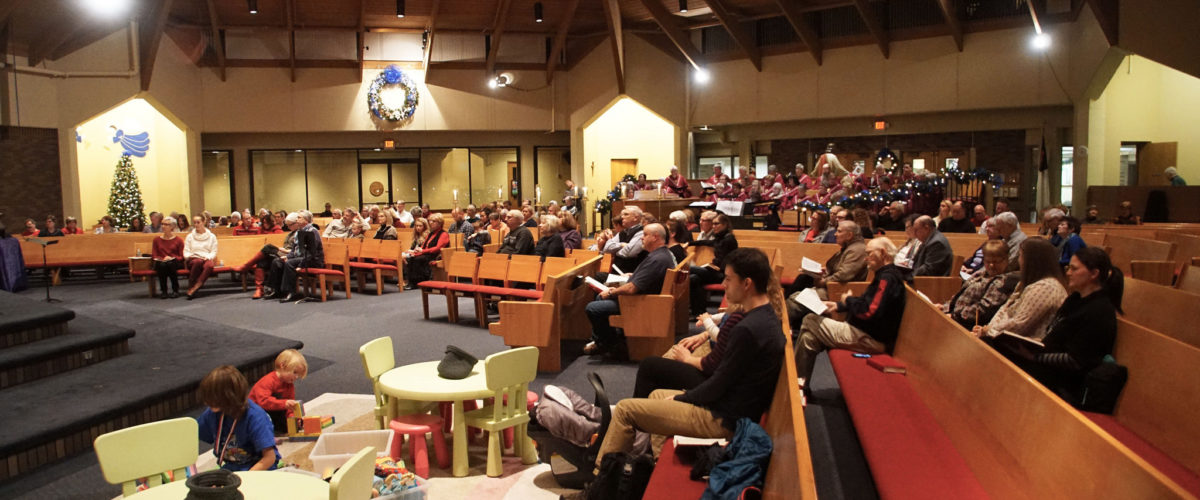Most Protestant churchgoers agree the Bible directs them to give from their earnings. But how much and where that money goes, apparently, is up to them.
A new LifeWay Research project found that half of Protestant churchgoers said they tithe to Christian ministries rather than churches. A third said their giving may be directed to individuals in need.

And 18 percent said they tithe to secular charities, LifeWay said in an online summary of their research.
“For many churchgoers, tithing is just another term for generosity,” LifeWay Research Executive Director Scott McConnell said in the summary.
It’s an attitude all too familiar to those who coach clergy and churches through congregational giving.
“You say the word ‘tithing’ to somebody today, even to a great many in church, and they will say ‘I tithe every Sunday,’” said Clif Christopher, a church growth consultant and founder of Horizons Stewardship, based in Little Rock, Arkansas.
The term has lost its original meaning of giving one-tenth of earnings to the church.
“For most a tithe is whatever comes out of their pocket, whether it’s 50 cents or $50,” said Christopher, the author of Holy Smoke: Whatever Happened to Tithing? and Not Your Parents’ Offering Place: A New Vision for Financial Stewardship.
“It’s no longer a biblical way to give.”
Nothing in the LifeWay Research poll was really surprising he added, though his clients are often surprised to learn that the solution to these trends isn’t just better fundraising.

Clif Christopher
“It’s about discipleship,” he said.
Christopher spoke with Baptist News Global this week on that concept and other issues driving modern attitudes toward church giving. His comments have edited for brevity and clarity.
What is your pastoral background?
I was a Methodist pastor serving local churches 20 years before founding Horizons in 1992.
Did you originally set out to serve just Methodist churches and organizations?
When I started Horizons, I thought I would spend my career working within the United Methodist Church in Arkansas. I fully anticipated I would simply do it during times I wasn’t serving a local church, on days off or on evenings. But it began to grow and grow. Today, Horizons works with a multitude of denominational groups and faith-based groups all over the world.
What are the biggest changes you’ve seen since getting into this ministry?
I think the greatest change we are facing today is that we are in much more of a church-less culture than we were in when I began my ministry in early ’70s. But even then, there were the beginning signs of some decline.
Was tithing seen differently then, too?
We talked about discipleship, stewardship, tithing, with a certain biblical understanding and foundation.
Are most churchgoers unaware of what scripture says about those concepts, just as they are about biblical stories and personalities?
When I was growing up, if the Bible says this, then I need to pay attention. That’s the way I raised. You go out today and say “the Bible says this” and it doesn’t mean more than saying Mark Twain said it.
Why is the solution about more than asking for more money?
We have to work with people to bring them to an understanding of the faith and a desire to be disciples. There are persons for whom stewardship is a church word for giving money. The same way they think about tithing. That’s not correct. Stewardship is a way of life. So with us, it all points to making disciples. That’s the end goal, not the acquisition of money. Becoming disciples means becoming what we were created to be. The more fulfilled and happy one becomes, the more that giving becomes a part of the discipleship process.
Does this process have to begin with clergy and church leaders, then?
It does. To We see an awful lot of churches and pastors that begin with the right motivation and desire. But ministry is a hard, hard life and very quickly one can succumb to it. “If I can just get the church debt dealt with” or “if every deacons meeting wasn’t about how to pay bills.” It slides into a belief that money is going to fix it all. The sad thing is that doesn’t happen.
How can that cycle be broken?
It takes a brave leader to do it. People can drop away. But are you looking for members to join a club, or for disciples of Jesus Christ? If it’s disciples, there will be less of them, but they will be a stronger army for Christ and will make a much bigger difference for Christ.
Is there a lot of resistance to such a discipleship-first approach?
Pastors feel pressured by deacons to get people and money in the door. There is pressure from lay leadership in the church to keep the church open, to pay bills. Discipleship is way down the line. And it is difficult.
How can pastors counter the prevailing notion that ministries and secular groups can be tithed?
I would never stand up in a pulpit and say they have to give to the church first and only after that give to a hospital or or college or the Sierra Club. What I have been telling pastors is to shift from “you should give” to “why should you give.” To me, that’s what makes the church the better servant of Christ, because your people who are in church love Jesus Christ and you need to make the case that that church is indeed serving him.


